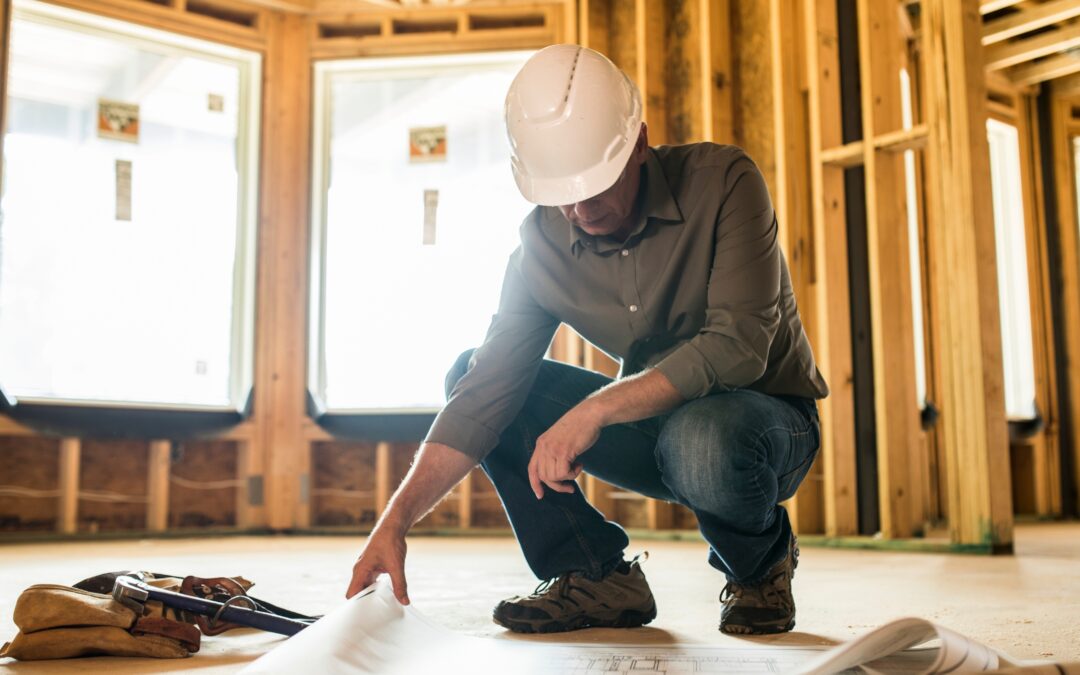Building or renovating your dream home in India is an exciting endeavor. However, it can also be a daunting task, especially when it comes to hiring the right home contractor. A good contractor can bring your vision to life, while a bad one can lead to delays, cost overruns, and a whole lot of stress. Therefore, to help you navigate this crucial step, we at Bricknbeams have put together this comprehensive guide to hiring a home contractor in India for 2024.
Step 1: Define Your Project and Budget
Firstly, before you even start looking for a contractor, it’s essential to have a clear picture of what you want to achieve.
- Scope of Work: Are you building a new house from scratch, adding an extension, or simply remodeling your kitchen? The more specific you are about the scope of your project, the better equipped you’ll be to find a contractor with the right expertise. For instance, if you’re planning a sustainable home with solar panels and rainwater harvesting, you’ll need a contractor with experience in those areas.
- Budget: Setting a realistic budget is crucial. Consider the cost of materials, labor, permits, and any unforeseen expenses. It’s always wise to have a contingency fund for unexpected issues that may arise during construction. Moreover, be upfront about your budget with potential contractors from the start.
Step 2: Finding Potential Contractors
Secondly, once you have a good grasp of your project, it’s time to start searching for potential contractors. Here are a few avenues you can explore:
- Word of Mouth: Ask friends, family, and neighbors for recommendations. Personal referrals can be invaluable, especially if they’ve had positive experiences with a particular contractor. For example, when we were renovating our office last year, we got a fantastic recommendation from a colleague for a skilled carpenter.
- Online Directories: Websites like Bricknbeams provide a platform to connect with contractors in your area. You can often filter your search based on specialization, location, and ratings.
- Local Builders’ Associations: These associations maintain a directory of registered and qualified contractors. They can be a reliable source for finding reputable professionals.
- Visit Construction Sites: If you see a project underway that you admire, don’t hesitate to inquire about the contractor. Observing their work firsthand can give you valuable insights.
Step 3: Shortlisting and Screening Contractors
After compiling a list of potential contractors, it’s time to narrow it down.
- Initial Screening: Start by checking their credentials. Do they have the necessary licenses and insurance? A valid license ensures they meet the required standards, while insurance protects you from liability in case of accidents.
- Experience and Expertise: Look for contractors with experience in projects similar to yours. For instance, if you’re building a traditional Kerala-style home, a contractor specializing in modern architecture might not be the best fit.
- Portfolio and References: Ask to see their portfolio of past projects. This will give you a sense of their style and quality of work. Don’t hesitate to contact their references to get firsthand feedback. When we were building our new website, we carefully reviewed the portfolios of several web developers before making our choice.
Step 4: Meeting and Interviewing Contractors
Now it’s time to meet your shortlisted contractors in person.
- Detailed Discussions: Discuss your project in detail, including your vision, budget, and timeline. Pay attention to how they communicate and whether they actively listen to your needs.
- Ask the Right Questions: Don’t be afraid to ask questions. How do they handle changes to the project scope? What measures do they take to ensure site safety? How do they manage waste disposal? The more information you gather, the better equipped you’ll be to make an informed decision.
- Obtain Multiple Quotes: Request detailed written quotes from each contractor. The quote should include a breakdown of costs for materials, labor, and other expenses. Don’t automatically choose the lowest bidder; consider the overall value and the contractor’s reputation.
Step 5: Verifying and Finalizing the Contract
Once you’ve chosen a contractor, it’s crucial to have a legally sound contract in place.
- Review the Contract Carefully: The contract should clearly outline the scope of work, payment schedule, project timeline, and dispute resolution mechanisms. If necessary, have a lawyer review the contract before signing.
- Check for Important Clauses: Ensure the contract includes clauses related to material specifications, warranties, and insurance coverage. For example, if you have a preference for a specific brand of cement or paint, make sure it’s mentioned in the contract.
- Payment Schedule: A typical payment schedule involves staged payments linked to milestones in the project. Avoid making large upfront payments.
Step 6: Project Management and Communication
Effective communication is key to a successful construction project.
- Establish Clear Communication Channels: Discuss how you prefer to communicate with the contractor, whether it’s through phone calls, emails, or regular site meetings.
- Regular Site Visits: Make time for regular site visits to monitor the progress of the work. This allows you to address any concerns or changes promptly.
- Maintain Records: Keep detailed records of all communication, invoices, and change orders. This documentation can be invaluable in case of disputes.
Step 7: Project Completion and Handover
As the project nears completion, pay close attention to the final details.
- Final Inspection: Conduct a thorough final inspection to ensure that all work has been completed according to the contract specifications. Create a punch list of any outstanding items that need attention.
- Obtain Completion Certificate: Once you’re satisfied with the work, obtain a completion certificate from the contractor. This document signifies the official completion of the project.
- Warranty and Maintenance: Clarify the warranty terms for the work done and inquire about any recommended maintenance procedures.
Additional Tips for Hiring a Home Contractor in India
- Be aware of local building regulations and permits. Your contractor should be familiar with these requirements, but it’s always good to be informed.
- Consider the contractor’s approach to sustainability. If eco-friendly construction is important to you, look for contractors who prioritize sustainable practices.
- Trust your instincts. If something feels off about a contractor, don’t hesitate to move on.
In conclusion, hiring a home contractor is a significant decision. By following these steps and keeping the lines of communication open, you can increase your chances of a successful and stress-free construction experience. At Bricknbeams, we’re committed to connecting you with reliable and skilled contractors to help you build the home of your dreams.

